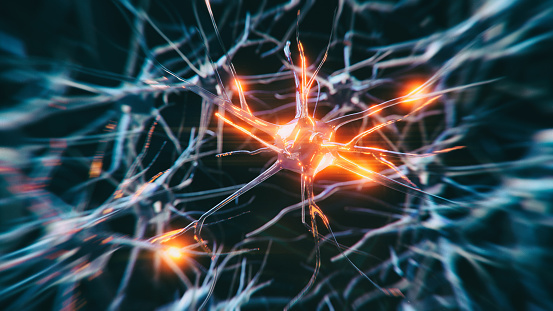Pinched Nerves: What Are They?
It’s when the pressure on a nerve is so great that it interferes with its ability to function, that it’s referred to as a pinched nerve. Arthritis and trauma are among the most common causes of disability. Although pinched nerves don’t usually result in permanent nerve dysfunction.
Pain, tingling, numbness, sensory loss, and weakness are all possible symptoms of this condition, affecting the spinal or peripheral nerves.
A pinched nerve can induce a variety of symptoms, the most common of which are as follows:
A burning sensation that is tingling and scorching Pins and needles-like sensations of electric shocks tingle the skin. Pinched nerves cause pain that radiates outward from the site of the injury.

Pain in an unconnected place that the patient feels (e.g., in your elbow or arm due to a pinched nerve in your neck). Hand or foot falling asleep while you’re still conscious of it.
The ability to distinguish between the sensations of pain, temperature, and touch on the skin. It increases the strength of a muscle that has been wounded (s). A pinched nerve typically affects only one side of the body and can cause anything from mild discomfort to excruciating discomfort.
Sensory nerves can detect sensations on the skin and control muscle movement in a nearby area. It’s not uncommon for the signs and symptoms of a pinched nerve to appear gradually and fluctuate. It’s common for the intensity of your symptoms to change depending on you physically.
However, you can have more than one pinched nerve, resulting in symptoms in different parts of your body. The fact that you may have physical weakness and changes in your sense of touch may not be uniform across your body should be kept in mind at all times.
Pinched nerves can affect a wide range of bodily functions:
1.Urine flow is inhibited as a result of this medication.
2.Intestinal hygiene.
3.Sexually transmitted disease.
Do not ignore the warning signs of a pinched nerve and seek medical attention immediately. Permanent sensory damage or weakness can result from a pinched nerve, which is usually painful. The nerve can be smothered or strained for an extended period.
Symptoms of a Pinched Nerve:
All the nerves in the body have a specific function, whether it’s to detect sensation in the skin or to stimulate particular muscles or organs. That which is usually delivered by the nerve that has been crushed is no longer available. The symptoms of a pinched nerve correspond to the sensory in cutaneous and musculoskeletal systems.
Physical Functions Impairment:

A pinched nerve can sometimes impair specific bodily functions. Lower back pain caused by pinched nerves is the most common cause of this condition.
Causes:
Swelling caused by inflammation can crowd and impinge on the area around a nerve. Bones, cartilage, and soft tissue around a nerve can be damaged by trauma, resulting in physical pressure and inflammation.
When the channels through which your nerves travel become inflamed or squeezed, they might become pinched.
The following are only a few of the many probable causes and risk factors:
1.Osteoarthritis.
2.Arthritis due to rheumatoid factors.
3.Overuse or recurrence of movements.
4.Deterioration of the joints.
5.Neck, back, and extremity injuries are all included in this category of injuries 4.
6.Fractures can occur in the bones.
7.Burns.
8.Altered balance during pregnancy and weight gain/obesity can put significant pressure on the nerves in the lower back.
9.Hypothyroidism.
10.Tumors, cancer, and other disorders of a similar sort are all possible outcomes.
Diagnosis:
Many factors go into determining the exact location of a pinched nerves . Your healthcare professional will inquire about your medical history, level of physical activity, and any injuries you have sustained.

